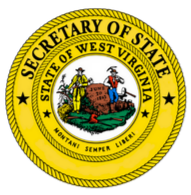West Virginia Living Magazine ‘Best of West Virginia’ Winners Revealed
HINTON, W.Va. – The Appalachian Beekeeping Collective (ABC), a project of the non-profit Appalachian Headwaters, was recently voted as the “Best Honey in West Virginia” in West Virginia Living magazine’s 2022 “Best of West Virginia” contest.
Since its creation in 2017, Appalachian Beekeeping Collective has helped hundreds of people in distressed Appalachian counties learn how to raise bees, harvest honey and sell their products in an environmentally responsible way. Terri J. Giles, a Hinton native who returned home for this venture, has been involved from the beginning and sees the multiple benefits of this social enterprise.
Two years ago, ABC launched its sales website – ABCHoney.org – to sell the natural honey its beekeepers have harvested from their 850 hives. The ABCHoney.org website features a selection of ABC honey in addition to products from partners Benko Glass, J.D. Dickinson Salt, Walter Hyleck pottery, and Rishi teas.
“When you shop with us, you support beekeepers, bees and environmental programs that help restore ecosystems in Central Appalachia,” said Giles. “All proceeds are invested back into the Appalachian Beekeeping Collective to expand our geographic reach, assisting more people, communities and the environment.”
Giles indicated that Central Appalachia is an ideal location for natural beekeeping, and honey produced from this region is distinct from other brands. “The abundance of diverse forest and undeveloped land in our region helps keep our bees healthy,” she said. “Our native Appalachian forests host an abundance of nectar-rich species such as tulip poplar, black locust, sourwood, and wildflowers. Most agricultural land with our hives are devoted to livestock, meaning that much of the area is covered is excellent bee forage, like clover.”
“Appalachia Beekeeping Collective has also grown into a thriving jobs program in West Virginia and Southwest Virginia that is producing natural honey that is free from pesticides and pollution,” said Giles.




